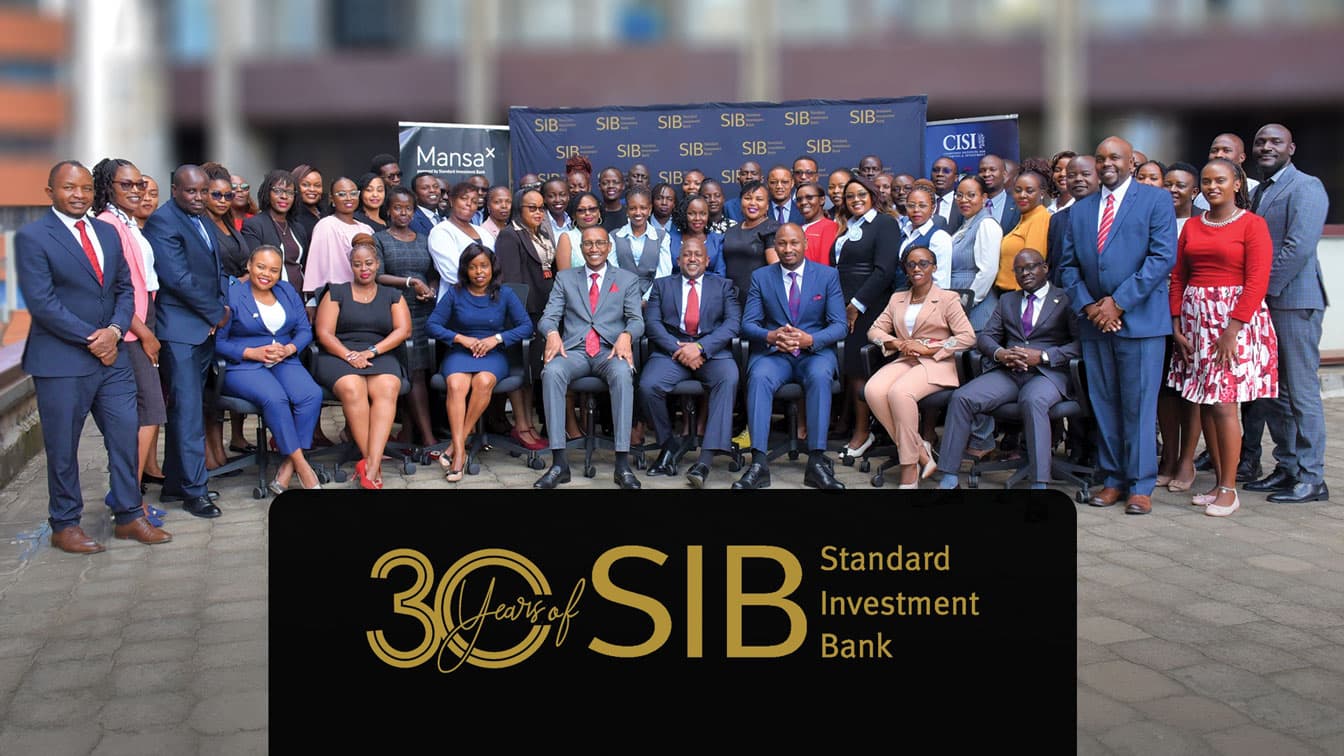We're loading the full news article for you. This includes the article content, images, author information, and related articles.
As Standard Investment Bank marks three decades, its founder James Wangunyu discusses the firm's journey from a small brokerage to a dominant player, mirroring Kenya's own financial market evolution and signaling a future driven by technology and deeper regional integration.

Standard Investment Bank (SIB), a cornerstone of Kenya's financial landscape, is commemorating its 30th anniversary, a milestone that closely tracks the growth of the nation's capital markets. Founded in 1995 by James Wangunyu as Standard Stocks Ltd, the firm began its operations from a modest two-room office in Rehani House, Nairobi, with a clear mission: to professionalize and democratize access to investment in a developing market. Wangunyu, whose career began in commercial banking at the National Bank of Kenya, saw untapped potential in a financial sector then dominated by traditional brokerage firms.
By 2000, the company had become Kenya's leading stockbroker by trading volume, a testament to its founding values of integrity and client focus. A pivotal moment arrived in 2003 when Standard Stocks obtained an investment banking license from the Capital Markets Authority (CMA), officially becoming Standard Investment Bank. This transition allowed SIB to diversify into corporate finance, advisory, and asset management, significantly broadening its impact on the Kenyan and East African economies.
Throughout its 30-year history, SIB has been at the forefront of financial innovation in Kenya. A landmark achievement came in 2018 when SIB was licensed by the CMA as Kenya's first Money Manager, leading to the launch of the Mansa-X Fund. This was the country's first multi-asset fund, granting both retail and institutional investors unprecedented access to global markets, including currencies, commodities, and global stock indices. This move was a significant step towards financial inclusion, a principle Wangunyu states has always driven the bank.
The commitment to inclusivity was further deepened in 2023 with the launch of SIB Najah and the Mansa-X Shariah Special Fund, products specifically tailored for Muslim and ethical investors. Today, the Mansa-X funds collectively manage assets worth over KES 110 billion, serving more than 50,000 investors. The fund's success was recognized when SIB was named the "Best Hedge Fund Manager in Kenya 2020" by International Business Magazine. More recently, in the third quarter of 2024, the Mansa-X Special Fund debuted at number three in the CMA's licensed funds report, with assets under management exceeding KES 34.2 billion.
SIB's influence extends deep into the structure of Kenya's capital markets. The firm has completed over 60 major advisory transactions, including Initial Public Offerings (IPOs), rights issues, and privatisations across East Africa. Notably, SIB was the lead transaction advisor for the demutualisation and public listing of the Nairobi Securities Exchange (NSE) in 2014, a landmark reform in Kenya's financial history. Wangunyu, who has served as both Chairman and Vice-Chairman of the NSE, played a crucial role in enhancing corporate governance standards and automating trading systems at the exchange.
The bank's corporate finance division has been instrumental in some of the region's most significant transactions, including advising on the KenGen Rights Issue in 2016, valued at KES 28 billion—the largest of its kind in Kenya. SIB also played a key advisory role in the acquisition of National Bank of Kenya by KCB Group. These transactions have not only shaped the country's economic architecture but have also broadened corporate ownership across various sectors.
Reflecting on the past three decades, Wangunyu notes the remarkable transformation of Kenya's financial markets from manual trading floors to sophisticated digital platforms. He identifies regulatory maturity, particularly the CMA's collaborative approach, and technological advancement as key drivers of this evolution. Looking ahead, he believes technologies like Artificial Intelligence and blockchain will redefine the industry by enabling smarter risk management and enhancing transaction security.
The Kenyan investment banking market, estimated at USD 226.7 million in 2025, is projected to grow to USD 337.1 million by 2033. This growth is expected to be driven by advisory services for small and medium-sized enterprises (SMEs) and large-scale infrastructure financing. As SIB enters its fourth decade, it continues to expand its physical footprint, having opened its first regional office in Mombasa in February 2025 to mark its 30th anniversary. The firm's journey underscores the potential of homegrown institutions to lead and innovate, positioning Nairobi as a formidable regional financial hub.
Keep the conversation in one place—threads here stay linked to the story and in the forums.
Sign in to start a discussion
Start a conversation about this story and keep it linked here.
Other hot threads
E-sports and Gaming Community in Kenya
Active 9 months ago
The Role of Technology in Modern Agriculture (AgriTech)
Active 9 months ago
Popular Recreational Activities Across Counties
Active 9 months ago
Investing in Youth Sports Development Programs
Active 9 months ago